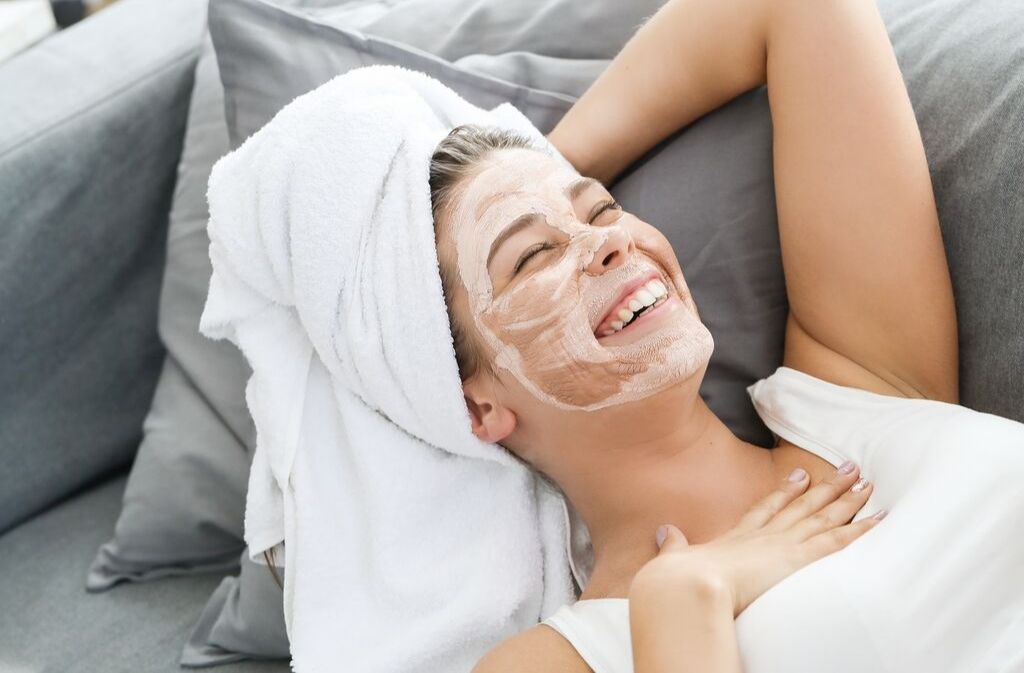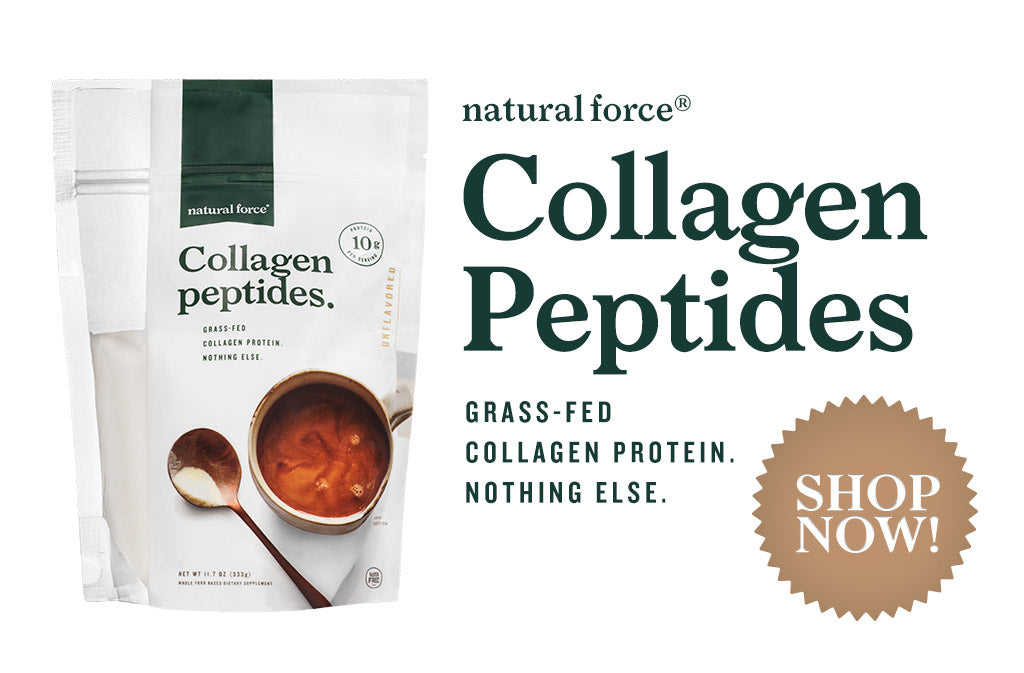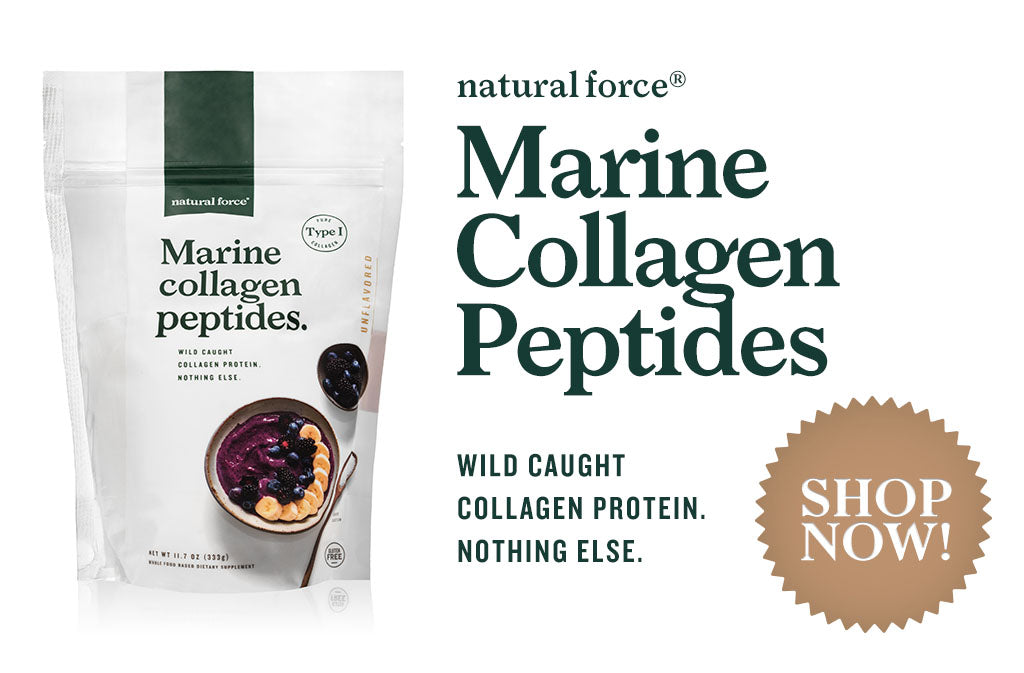Collagen Masks Don't Work. Here's What the Science Says (+ Alternatives)

Do collagen masks work? The short answer is no. The makers of collagen masks, creams, and other topical products claim that they can give you smoother, more hydrated skin, fewer wrinkles, and even less cellulite, but the scientific evidence is not on their side. While topical collagen products are unlikely to be harmful, it is also unlikely that they will be effective due to the fact that, unlike your digestive system, your skin simply can't absorb large protein molecules like collagen.
In this article, you will learn:
- Why oral collagen supplementation works
- Why topical collagen products like masks don’t work
- 5 natural collagen boosters for better, brighter skin
Why Oral Collagen Supplementation Does Work
When you consume the collagen and other cofactors that trigger collagen synthesis in your body, your skin cells produce tiny molecules called procollagen. Procollagen molecules then bind together to form small strands of vitamins and minerals called fibrils. Fibrils then grow into large, more complex fibers that attach themselves to skin cells. Once the fibers are formed and attach to skin cells, the magic of collagen synthesis is in play. This is the scaffolding that provides structure, elasticity, and moisture to your skin.
It’s important to note that all of this happens naturally when you consume collagen from a peptide supplement, bone broth, or by gnawing on the connective tissue of animals. Vitamin C is also a critical cofactor to collagen production.
Shop Now!Why Topical Collagen Products Like Masks Don’t Work
Knowing exactly how you synthesize new collagen, the idea of topically applied amino acids from collagen doesn’t make a ton of sense.
There’s some budding evidence that collagen injections and topical formulations can supplement your skin’s collagen for short periods of time. But it’s likely that your body will end up breaking that collagen down into amino acids and absorbing it. These products may provide some temporary results, but do nothing to stimulate new collagen growth.
Other products claim to have formulated transdermal collagen, peptides that can cross the skin barrier to stimulate new collagen growth and help maintain existing collagen. However, these are specially formulated products that run into hundreds of dollars. Not quite the same as slathering collagen powder on your face.
The consensus? It won’t hurt you to use collagen topically, but it’s unlikely that it’s the amino acids that are making your skin look younger and much more likely that it’s the other ingredients in your cream or mask.
Shop Now!5 Natural Collagen Boosters for Better, Brighter Skin
While the best and most cost-effective way to boost collagen is to take a daily collagen supplement, there are other natural options that can help as well.
Collagen Supplements + Vitamin C
Vitamin C is critical for collagen production, so you can ensure that you have enough by supplementing with about 1,000-2000mg of vitamin C per day. Fresh fruits and vegetables, especially citrus and green leafy vegetables, are also great natural sources of vitamin C.
Daily Movement
Increasing blood flow helps stimulate collagen production, so daily exercise, can help ensure that you're not just sweating, you're "glowing"!
LED Light Therapy
Regular LED light therapy is an effective and non-invasive way to stimulate collagen production to reduce wrinkles, improve skin texture, and tighten the skin. There are several personal devices on sale, which is great news because you’ll only see results after consistent use.
Microneedling
Microneedling is a procedure that creates tiny injuries to the skin to stimulate your natural healing process, which results in higher cell turnover and an increase in collagen production. You can get similar effects at home with a dermaroller – just be aware that the needles won’t go as deep and, therefore, don’t have quite as a dramatic effect.
Topical Hyaluronic Acid
Hyaluronic acid is a compound that your skin cells produce naturally to maintain moisture levels. More moisture means fewer lines and wrinkles. It turns out there is some pretty substantial evidence that topical hyaluronic acid promotes better moisture retention and skin elasticity. It’s also more affordable than transdermal collagen peptide creams.
Ready to Get Started?
If you're ready for brighter, more youthful skin, and are looking for a collagen product that actually does work, we recommend checking out our grass-fed Collagen Peptides or sustainably sourced, wild caught Marine Collagen. Both are pure, unflavored collagen supplements that have no added sugar or artificial anything and can be easily added to your daily coffee, tea, or smoothie without affecting its taste.
(For more info on the difference between bovine collagen and marine collagen, check out this article.
(Want articles like this via email? Here's the sign up)


